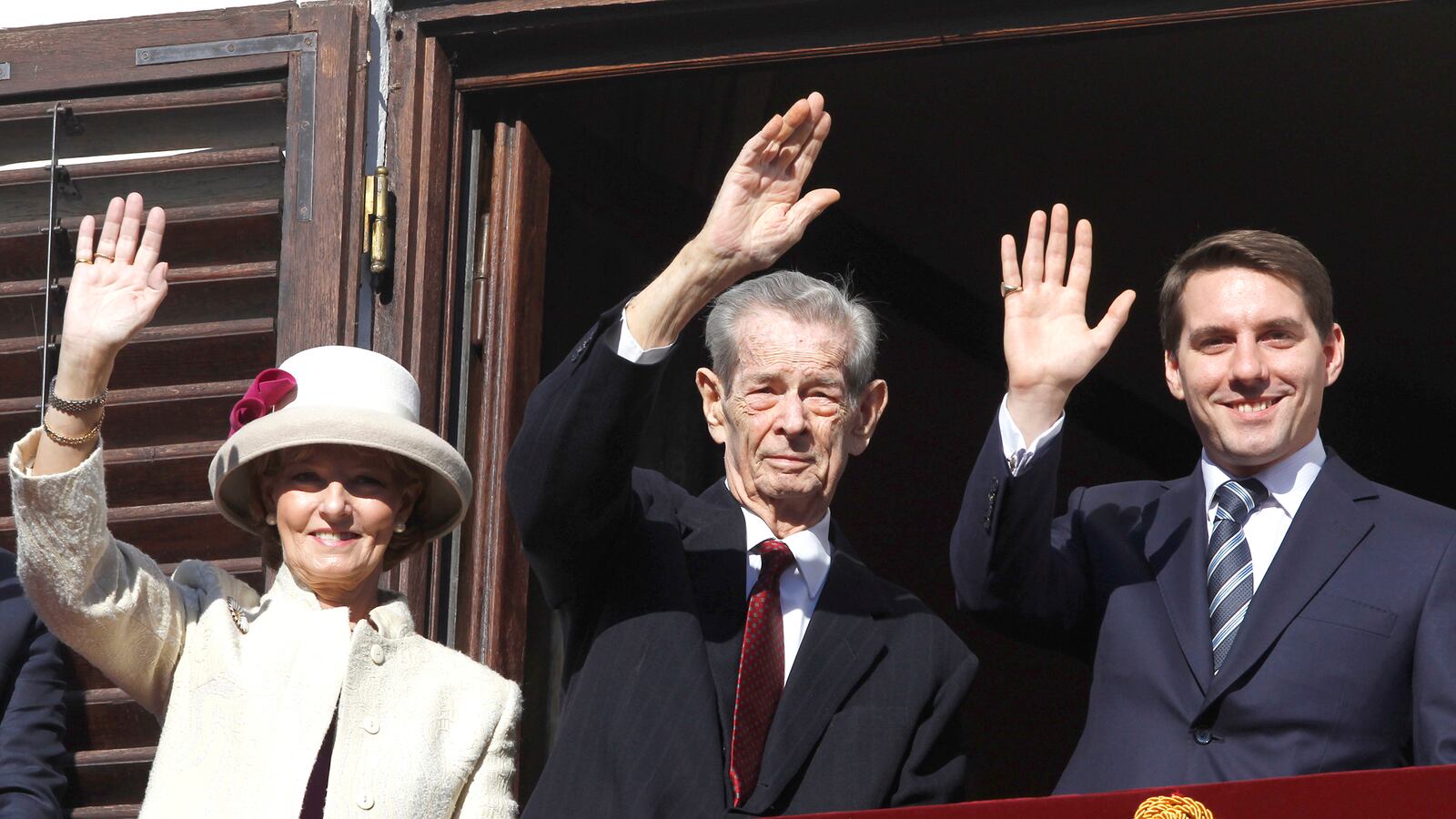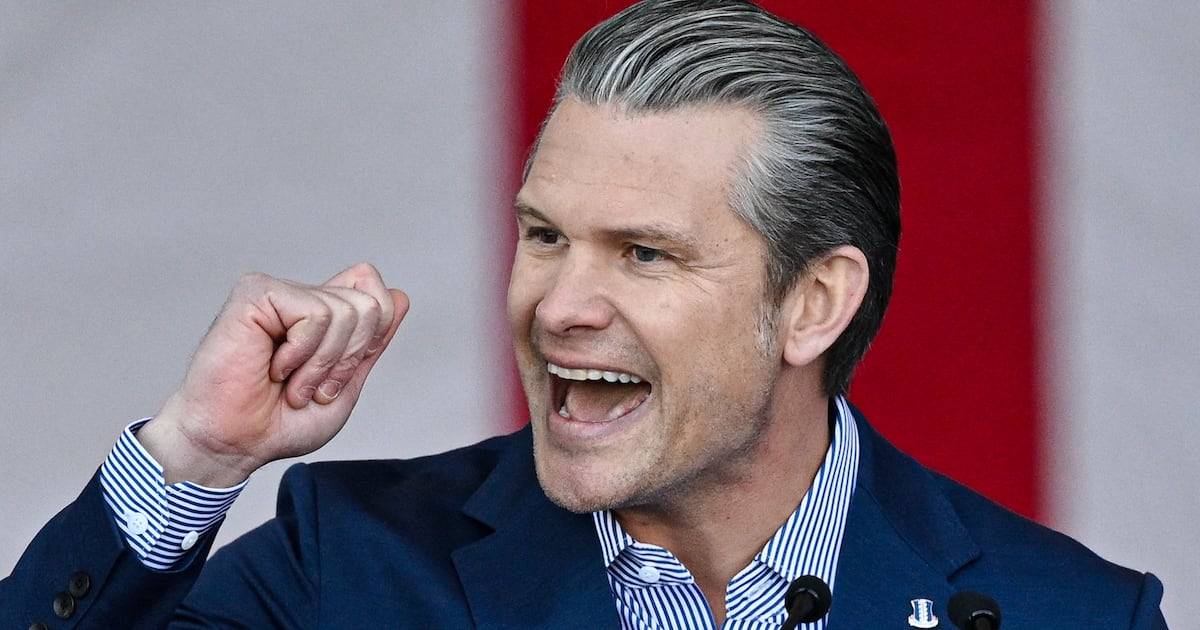One might have thought that a handsome young Princeling of 30 years old, passionate about conservation, given to cycling the length and breadth of his country, and blessed with an endearing common touch, would be just the man to one day be King of Romania.
Factor in the consideration that Prince Nicolae of Romania has no known vices (for example, he has not been convicted of running cockfights in Oregon like his Aunt Irina, who was cut out of the succession for just such a crime) and enjoys tremendous popularity at home, and one might, like many Romanians, be left scratching one’s head as to why his grandfather, King Mihai I—“a decent cove,” according to one friend of the family, if somewhat doddery at the age of 93, and widely known as Michael—should have stripped Nicolae of his title and his place in the order of succession.
Michael issued a bizarre statement implicitly impugning Nicolae’s character to justify the dramatic move.
A notice posted on the family’s official website declared that Michael had withdrawn the royal titles and privileges from Prince Nicholas because the family should be led by someone who is “modest, well-balanced and with moral principles”.
An ‘adviser’ to the King, Ioan-Luca Vlad, was immediately dispatched to brief the press that the decision came following “an emotional disparity between Nicolae’s ideals and the House’s standards.”
The adviser added that Swiss-born, British-raised Nicolae, who only moved to the country (and began learning Romanian) five years ago, specifically to take up his royal role, “had involvement in professional sports and private activities that do not match the work of succession, had no diplomatic experience, and these challenges were too great.”
He stressed that the decision was not a ‘punishment’, and said that journalists ‘should not look in any garbage cans’ as they wouldn’t find any dirt on Nicolae.
Having spent several days kicking over every Romanian garbage can in booting distance, I can report that Vlad is quite correct; no-one has anything but warm words to say about Nicolae.
He is unmarried, but there is no suggestion he is gay (outrageous as such discrimination would surely be, an assumption that he was being given the boot because of sexuality issues was just one of the many theories floated in recent weeks).
Everyone is utterly mystified at the actions of the King, who has now gone on holiday and refuses to say another word about the dramatic expulsion.
The drama leaves Nicolae’s childless Aunt Margaret untouched as the second-in-line to the throne, and, as the updated Royal website states, means that Nicolae’s place, as the heir apparent of the next generation, has now been taken by his younger sister, Elisabeta Karina.
It is here, Romanian sources say, that the plot thickens. Nicolae’s ejection from the line of succession is actually a very quiet coup d’etat they say, orchestrated by family members who would prefer to see the family fortune in hands other than Nicolae’s.
As Vlad pointed out, Nicolae is no politician, and whatever else may have motivated the decision, it is clear the young man has been comprehensively outplayed by his more senior enemies at the Elisabeta Palace in Bucharest.
The fact that Romania is actually a republic and has been since 1947 when the Soviets deposed Michael (then just 26), is a mere side note to this intriguing European power struggle.
Michael is a member of the immensely wealthy Hohenzollern-Sigmaringen dynasty that officially ruled Romania from 1866 until 1947. He has actually been king twice; the first time he was a 6-year-old child, but that reign ended when his father, Carol II, reneged on an earlier abdication.
His citizenship was not fully restored until 1997, but he still lives much of the year in Switzerland. The family have no official position in modern Romania, and are not formally recognized as HRHs in their country, but they do what royals in other European countries do—a bit of charity, a bit of national PR and a lot of managing vast private fortunes (estimated at anywhere between 60 and 200 million euro) in the name of the national interest.
“Its all about money,” says one source of the latest throne room drama. “They still own a lot of land, a lot of castles.”
Nicolae’s story prior to his elevation and subsequent ejection from the royal ranks is typical of the gilded youth of many dethroned and peripatetic European families.
He was born on April 1, 1985, in Geneva, son of Princess Elena (Michael’s second-eldest daughter and third-in-line to the defunct throne) and an academic adviser to the UN, Robin Medforth-Mills.
Nicholas Medforth-Mills, as he was then (and is now once again), attended Shiplake College in Henley, near Oxford—a perfectly respectable if slightly nouveau public school founded in 1959, where he was not particularly academic but a keen sportsman.
He went on to a middling London business school after a spell working in adventure sports such as rafting.
All in all, being King of Romania was not widely considered part of his destiny, so there was some surprise when in 2010, upon his turning 25, King Mihai I—a cousin of Britain’s Queen Elizabeth—conferred on him the title of “Prince of Romania” with the “Royal Highness” style, in an elaborate ceremony at the Elisabeta Palace in Bucharest.
So what has gone wrong, people are asking?
The simplest answer was given by one source who said, “He’s fallen out with his grandson, basically.”
Part of Nicolae’s clash with his grandfather is said to concern what the King perceives as a lack of regal dignity on Nicolae’s part. While, for example, most would applaud his 1,000-mile bike ride across the country in aid of a literacy program, it did not please the King, who is said to have been dismayed at the future ruler allowing himself to be photographed sunburnt and unshaven.
A story in the papers that Nicolae was moving out of the royal palace because he couldn’t get pizza delivered there—the pizza companies, he said, thought it was a joke when he gave the address and hung up—also went down badly with the old man, sources say.
In other places they call this, with approval, a common touch.
It all seems like mystifyingly slender grounds on which to part a young man from his birthright.
Ion Ionita, editor in chief of Romania’s Historia magazine, and a pro-Monarchist, told the Royalist via email that while he respected the integrity of King Michael and his decision, the lack of information or justification for it had caused “a lot of frustration” among Royalists.
“Nicolae represents for them the future of monarchy in Romania. In fact, nobody except the king and his inner circle, knows the reason behind the King’s decision. There are some rumors about a family dispute concerning the succession and rivalry but they are just rumors, not evidences.
“The story is a mystery and now it is very difficult to anticipate the future of monarchy in Romania taking into consideration Prince Radu and Princess Margareta have no children.”
The ‘rumors’ that Ionita is referring to are widespread speculation that Margaret and her husband, Radu Duda, have sought to cut Nicolae out of the family, but as they have no children and are next in line of succession anyway, it is hard to see how they would benefit materially.
Nicolae has apparently however accepted the decision without a fight: “The position of Prince of Romania and the presence in the Line of Succession to the Crown of Romania impose a way of conducting my life I find difficult to accept. Which is why, with much sorrow in my soul, the decision of His Majesty the King is welcome,” he said.
The official website now shows Elisabeta Karina, Nicolae’s sister, as fourth in line to the throne, taking Nicolae’s place. She, like her brother, grew up in England but does not speak any Romanian and is believed to visit the country only infrequently. It is unlikely she will be racing to take up the throne.
What this means for the future of the Romanian royal family remains to be seen. But there is little doubt that the consequences of the dramatic actions of King Michael will be felt in certain strata of European society for many years to come.






